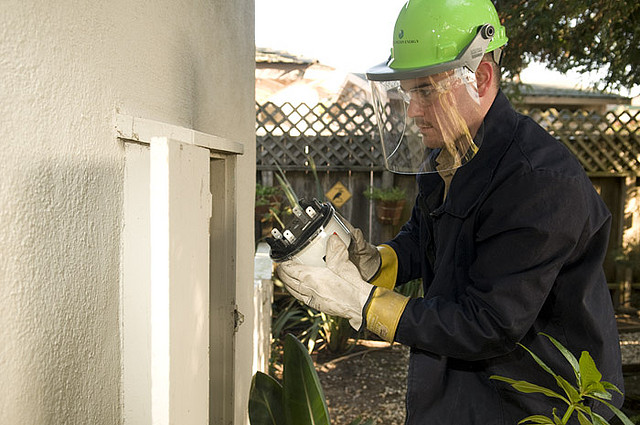
Since performing research for my book, Climate Capitalism (written with Hunter Lovins) a few years ago, I have become increasingly convinced that the smart grid has the potential to be one of the "holy grails" in the clean tech revolution. I believe that the smart grid can be the enabling technology that enable all kinds of other low-carbon innovations to flourish.
The smart grid will give industrial, commercial, and residential consumers real-time access to energy consumption and costs, which will lead to demand side reductions (i.e. energy efficiency). It also promises to support distributed, renewable energies from rooftop solar panels to electric vehicles (EVs). Combined with smart homes, the latter could even be used to power a consumer's home for a few days in the case of power outages, which could be reduced in frequency, volume, and duration with help from smart grids.
With huge corporate behemoths like GE, Cisco, and IBM as well as hundreds (if not thousands) of tech startups already in this space, why hasn't the smart grid become more ubiquitous? Unsurprisingly, Europe seems further down the path with the potential to leverage wind power from the North Sea Grid and solar power from southern Europe in a continental supergrid. But why hasn't the U.S. made more progress towards smart grid connectivity?
I think one of the biggest challenges is the industry's lack of stakeholder engagement from consumers (corporate and residential) and politicians. When utilities have in the past held referendums regarding the investment in smart grid technologies, the vote does not always go in their favor. This is often because consumers believe that the costs outweigh the benefits. More needs to be done to clearly establish the business case for smart grid adoption. Of course, I am not alone in recognizing this issue. The Smart Grid Consumer Collaborative is focused squarely on the problem. And Katharine Brass, the Program Manager for GE's Ecoimagination program, recently argued that the biggest barrier to more widespread adoption is consumer perception. Security Concerns. In today's world of heightened concerns over terrorism and increasingly sophisticated hackers, there is no wonder many worry about the vulnerability that our energy system could be exposed to if it truly were as IT-focused (and dependent) as we envision. This is a legitimate concern being addressed by the industry, as evidenced by the forthcoming Smart Grid Security Summit to be held next week in San Diego.Standards. To Fast Company readers, this will sound like a familiar problem. Numerous technology providers are providing a range of technology solutions from smart meters to grid automation software--and many of them have a vested interest or a desire to use proprietary, closed standards. The smart grid will only succeed on a large scale if technology suppliers agree to work on an open standard. Regulatory and Policy Support. The U.S. has a difficult landscape for bringing the energy industry into the 21st century. We have a mix of federal regulation and state legislation, as well as some level of autonomy at the municipal level. A great book that explains this issue is Smart Power: Climate Change, The Smart Grid, and the Future of Electric Utilities. Guido Bartels, IBM’s head of Global Energy and Utilities, as well as Chairman of GridWise Alliance and an adviser to the Obama Administration, has also spoken up about the need for more regulatory action to provide the proper incentives for the adoption of smart grid technology.I have no doubt that we will see continued progress towards the adoption of smart grid technology in the U.S. And yes, there has been progress. More than 20 million smart meters have already been installed in the country, with approximately 60 million planned for near-term installation. However, the barriers discussed above are legitimate challenges that the industry and its stakeholders need to overcome. For example, in the past few months, BC Hydro encountered opposition from consumers and municipalities in British Columbia to its smart reader rollout because of fears about low-level radiation. For now, BC Hydro has committed to moving forward with or without community support. Perhaps the utility should consider addressing barriers number one and four for their next phase of the smart grid rollout.
[Image: Flickr user pgegreenenergy]
Boyd Cohen, Ph.D., LEED AP, a climate strategist helping to lead communities, cities and companies on the journey towards the low carbon economy. Dr. Cohen is the co-author of Climate Capitalism: Capitalism in the Age of Climate Change.